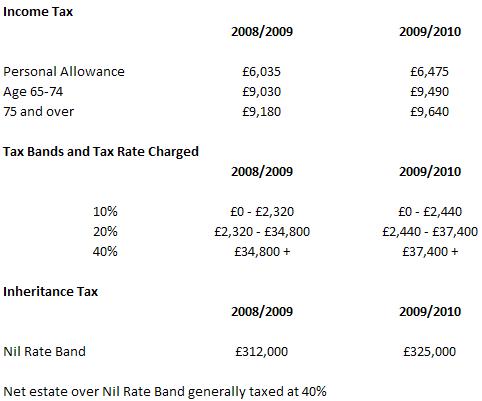Here is our usual monthly list of the top 10 read articles on shrewdcookie.com in September – there are some surprising entries!
1. Change in ISA allowances in Budget 2009
The changes announced in the Budget in respect of increases in the ISA allowances come into effect on 6th October for those over age 50 before the end of the current tax year – can invest up to £10,200 into a Stocks and Shares ISA. Woo hoo!!!
2. New Tax Year – New ISA Allowance
More detail on the changing ISA allowances.
3. Download a Free 2010 Yearplanner
I have put together a great little yearplanner for 2010 – it can be downloaded in A4 (landscape) or larger A3 (printed on 2 sheets of A4 for those without an A3 sized printer!). Feel free to send copies to friends, family and colleagues at work.
4. 19 Essential Money Tips for Students
With the start of the University/College/School term upon us here is a great article which might help a few students who are struggling through on their limited finances.
One of the first principles spoken of in the great book “The Richest Man in Babylon” is the need to pay yourself first – the principle here is to take a fixed percentage off your take-home pay and keep that money for yourself forever – then your lifestyle will change itself to allow you to live on the remainder. Get a copy of this book – a truly great read. It could be the most valuable £4.99 you ever invest!
6. Cashflow Forecasting – Planning Income and Expenditure
Here is a really helpful little spreadsheet which will allow you to plan your income and expenditure on a monthly basis – you will be able to see exactly where your money goes to each month – allowing you to make changes in your expenditure – a great tool for “what if” scenarios – what if I stopped eating out, what if I increased income by £200 per month etc.
7. Personal Pension Minimum retirement age increasing to 55 from 6th April 2010
Those people who will be over 50 before 5th April 2010 and were planning to retire in the next 5 years may have to take some urgent action between now and then – in the worst case scenario you may have to continue working for another 5 years!
8. Wear a uniform to work – here’s some free money!
If you have to wash your own work uniform you could be entitled to some money from the taxman – read the article for more information.
9. Get Money for your Old Mobile Phone
Did you know you can sell old mobile phones – I recently sold my old Sony Ericsson K800i and got £28 for it – worth checking out what yours might get you – see the article.
10. 10 Great Reasons for Writing a Will
Everyone needs and should have a Will – it saves so many problems in the event of your death – and let’s face it the only two certainties in life are death and taxes! Read the article now – you might be surprised.
And finally……
Be sure to subscribe to our newsletter – it’s free and you can cancel it at any time.
Also – did you know you can receive our blog posts via RSS.
